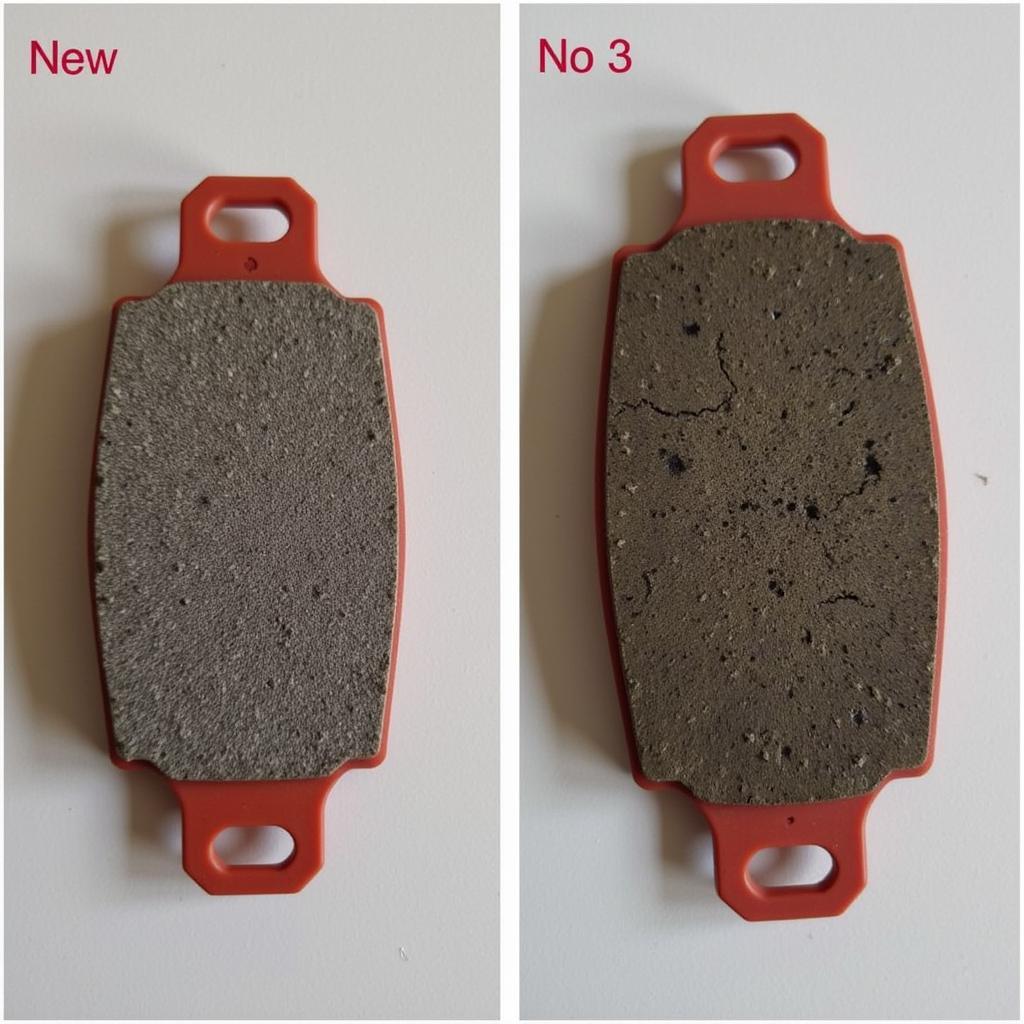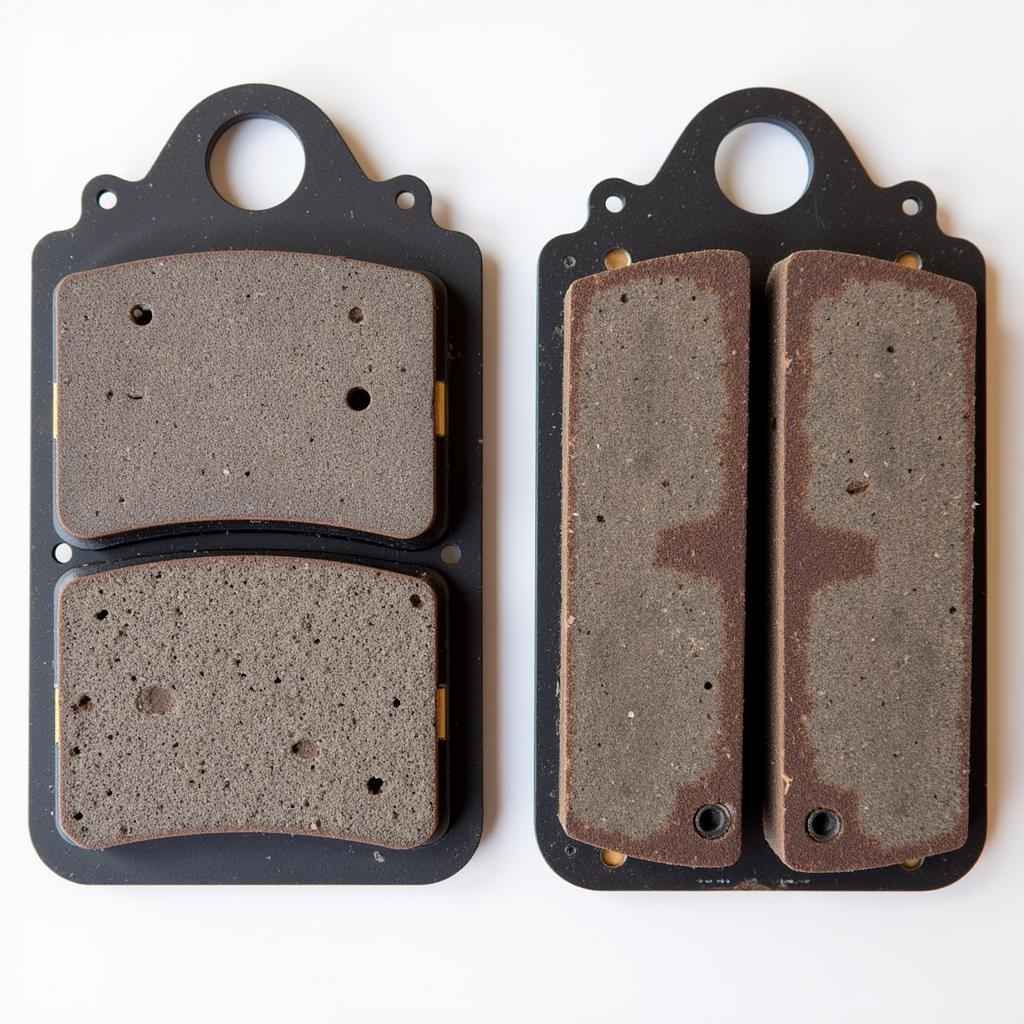If you’re experiencing brake problems with your 2004 Toyota Prius and no warning lights are illuminating on your dashboard, you’re not alone. This is a common issue reported by many owners, and it can be tricky to diagnose. While this article provides guidance, remember, safety is paramount. Consult a qualified mechanic immediately for any brake concerns.
This article delves into potential causes, diagnostic steps, and possible solutions for a 2004 Prius brake problem without warning lights.
Understanding the Complexity of the Prius Braking System
The 2004 Prius utilizes a unique electro-hydraulic braking system, combining traditional hydraulic brakes with a regenerative braking system. This integration, while enhancing fuel efficiency, introduces complexities absent in conventional braking systems.
The absence of warning lights further complicates the situation. Typically, warning lights are triggered by sensors detecting anomalies in the braking system. However, in this case, the issue might lie outside the sensor’s detection range, making pinpointing the root cause more challenging.
Potential Causes of 2004 Prius Brake Problems
A 2004 Prius brake problem without warning lights could stem from various sources, ranging from simple wear and tear to more complex electronic glitches. Here’s a breakdown:
1. Brake Fluid Issues
Brake fluid is the lifeblood of any braking system, and the Prius is no exception. Low brake fluid levels, often due to leaks, can significantly impact braking performance. Air in the brake lines can also lead to a spongy brake pedal feel.
Troubleshooting Tip: Check your brake fluid reservoir. If the fluid level is low or the fluid appears dark and contaminated, it needs to be flushed and replaced.
2. Worn Brake Pads and Rotors
Brake pads and rotors naturally wear down over time. Excessive wear can lead to reduced braking performance, noise, and vibrations.
Troubleshooting Tip: Inspect your brake pads for wear. If they are thin or worn unevenly, it’s time for replacement.
 Worn Brake Pads on a 2004 Prius
Worn Brake Pads on a 2004 Prius
3. Issues with the Brake Actuator
The brake actuator in a 2004 Prius is an electromechanical component that provides the hydraulic pressure needed for braking. Malfunctions in the actuator can lead to a variety of braking issues.
Troubleshooting Tip: Diagnosing a faulty brake actuator often requires specialized diagnostic tools and is best left to trained mechanics.
4. Problems with the Skid Control ECU
The Skid Control ECU (Electronic Control Unit) plays a crucial role in managing the Prius’s braking system, including the Anti-lock Braking System (ABS) and Vehicle Stability Control (VSC). Problems with the ECU can cause a range of braking problems.
Troubleshooting Tip: Similar to the brake actuator, diagnosing a faulty Skid Control ECU requires advanced diagnostic tools and expertise.
5. Other Potential Causes
While less common, other issues that might cause brake problems without warning lights include:
- Faulty brake calipers
- Malfunctioning brake master cylinder
- Issues with the brake booster
- Wiring problems within the braking system
What to Do If You Suspect a Brake Problem
If you suspect a brake problem with your 2004 Prius, especially without warning lights, here’s what to do:
- Stop Driving Immediately: Continuing to drive with potential brake problems is extremely dangerous.
- Contact a Qualified Mechanic: Schedule an appointment with a mechanic specializing in Toyota hybrid vehicles. They have the expertise and tools to diagnose and repair the problem safely and effectively.
“Ignoring brake problems, especially in a complex system like the Prius, can lead to costly repairs down the line. Early detection and intervention are key.” – John Miller, ASE Certified Master Technician
Preventing Future Brake Problems
- Regular Maintenance: Adhering to the manufacturer’s recommended maintenance schedule for brake fluid flushes and inspections is crucial.
- Mindful Driving: Avoid harsh braking whenever possible. This puts less strain on the entire braking system and can help extend the life of your brake components.
- Listen to Your Car: Pay attention to any unusual noises, vibrations, or changes in brake pedal feel.
Addressing brake problems promptly is essential for your safety and the longevity of your 2004 Toyota Prius. If you’re experiencing brake problems, don’t delay seeking professional help.

